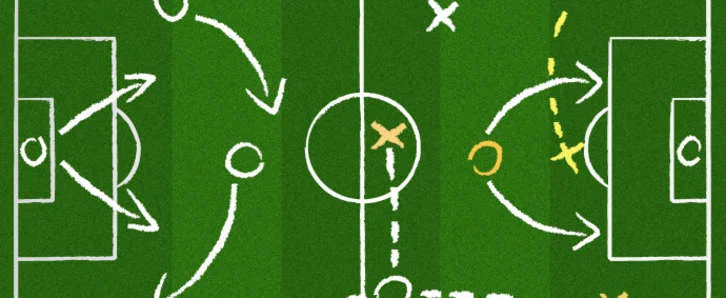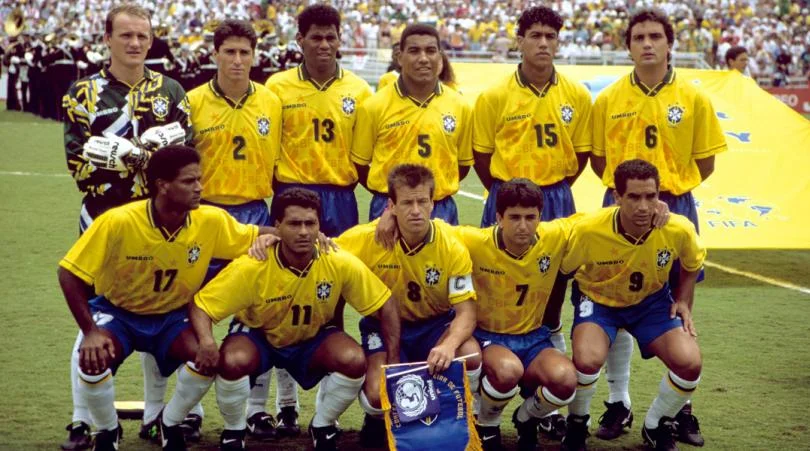Football Identity
The integration of a culture and system sets the foundation that shapes a club or country’s footballing identity from origination onwards. Once the philosophy is established and known, it may be altered based on naturally revolving personnel however, the original principles should be maintained. Similar to football entities, businesses emphasise corporate culture in their ethos and the workforce understands what the deep rooted foundation of a company is. This leads into setting expectations to the staff who are willing to work for the particular organisation.
One of the greatest managers in the history of the beautiful game, Sir Alex Ferguson, stated the following which pertains to the infrastructure of the cultural mindset he instilled at Manchester United:
“Everything we did was about maintaining the standards we had set as a football club—this applied to all my team building and all my team preparation, motivational talks, and tactical talks. For example, we never allowed a bad training session. What you see in training manifests itself on the game field. So every training session was about quality. We didn’t allow a lack of focus. It was about intensity, concentration, speed—a high level of performance. That, we hoped, made our players improve with each session.”
Sir Alex Ferguson
Football clubs and national teams around the world are known for the system that they deploy which is in-part bred from the authentic culture they imparted. Barcelona and Spain implement tiki-taka, a short passing and high tempo method of playing. Bayern Munich and Germany are acknowledged for their rigid discipline and systemic approach. Italy is a defence first regime which suffocates the opposition and is explosive up front. Finally, the Dutch are known for total football emphasising possession and use of the full trajectory of the pitch to pull the opposition out of position and create space to exploit. The below video expresses the tika-taka system of Barcelona which the Spanish national team also deploys. As you watch, observe the formation of triangles between players to pass within, thereby creating two options every time a player has the ball. Once one triangle dissipates another forms. It truly is art in motion:
Evolution requires change making systems dynamic however the core principles remain unwavering. For example, the Germans have grown to incorporate a technically astute style of football integrating players like Mesut Ozil who creates magnificent scoring opportunities through impactful passes. The Italians sporadically have a fantastic flair with quick triangle passing between talented players such as Eder, Ciro Immobile and Marco Veratti. Successful countries manage to manipulate their system to cater to their most talented players. However, even through generational shifts in personnel the common ideology is maintained and remarkably, in challenging circumstances a country will revert to its original, tried and tested method. For example, if Germany is winning a match late in the game they will turn to a methodical approach by keeping their shape and mitigating risk by controlling the tempo. If Italy has a lead they collapse defensively creating an impenetrable barrier to their goal.
Gary Lineker, 1990
There are also the countries that have emerged with an influx of technically gifted footballers, however somewhere along their evolutionary path they lost their football identity. In World Cup 1990 in Italy, England had a workmanlike, disciplined team complimented by the wondrous talent of Paul Gascoigne and the finishing prowess of Gary Lineker. As a unit, they exuded a lionhearted spirit which enabled them to hassle the opposition and be strong and persistent without the ball. The squad captured the hearts and minds of a country by making it to the semi-final, eventually losing to West Germany on penalty kicks. Since 1990, England has produced a golden generation of talent including players such as David Beckham, Frank Lampard, Steven Gerrard and Rio Ferdinand. However, rather than incorporating this new genesis of talent into their footballing ethos, they tried to emulate the latest trend in football based on the personnel available. The consequences have been catastrophic as the combination of generational change and abandonment of core principles has rendered obscurity on the international stage.
Canada has never developed a footballing culture or system. Instead, we have tried to change tactics according to the players at our disposal. The reason that this hasn’t worked is because there is no commonality amongst the group. For example, I looked at the squad for the crucial World Cup Qualifier that was played on September 2, 2016 versus Honduras. The 23 man roster contained players from approximately 12 distinctly different leagues. In addition to trying to intertwine players from clubs with different philosophies, there are other variables such as disparate time zones, travel fatigue, player abilities and more which create a barrier to success. To bring a squad with that much diversity together a few times per year for a short period and expect them to garner results without having a known cultural system to abide to is unreasonable.
How would a system assist in aiding the progression of Canada football?
As previously stated, in times of adversity a country will revert to its original systemic culture. Therefore, when playing in 30° heat with high humidity after coming from playing club football in the freezing Norwegian winter, an understood ‘system’ will act as a form of confident security. Compare Canada’s scenario with that of our Southern neighbour, the USA, who had players called up from roughly five different leagues in their last international match. They have tried to develop a system based on athleticism, fitness and counter-attacking ability. When they are playing inferior opposition, they also have the ability to move the ball quickly and play possession football. In football terms, the USA has only recently come out of the unknown, therefore they are still trying to establish a long term footballing ethos but initial progression is positive and foundational principles have been established.
Canada Men's Football Team in the 1986 World Cup, Mexico
Finally, let’s analyse two of Canada’s recent long serving managers. The latest coach was Spaniard Benito Floro, an accomplished manager who spent time with decorated clubs such as Real Madrid. Between 1999 - 2003, Holger Osiek held the reigns and is arguably one of the more successful managers in Canada football. The German had an extremely distinguished background of being an assistant manager to Franz Beckenbauer for the 1990 West Germany team that won the World Cup. While Osiek did lead the team to Gold Cup success, it was primarily due to a batch of players he had inherited such as Craig Forest, Carlo Corrazin and Jason DeVos, rather than the implementation of a football philosophy. Under Floro, it must be sadly stated that there was a regression in Canada football and currently our country is in a nasty spiral within a bottomless pit.
The declining FIFA ranking of the Canada's Men's National Team since 1993 (FIFA.com)
There is a common theme on the reason that Canada football cannot progress consistently and it is not the manager or the players; it is the lack of foundational principles and the forever changing methodology trying to be deployed. The next manager will struggle with the same issues that previous managers have. Therefore before making the decision on who that person is, Canada football needs to lay the foundation to establish a common culture and system which they want to develop and then identify the person who holds the capabilities and competencies to incorporate that philosophy in the National Team. From there, the message needs to filter down to every level of football in Canada stating that ‘this is our philosophy and this is the plan to incorporate it.’ It’s not to say that club teams cannot have their own tenet but the overall ethos will organically begin to permeate throughout the country.
I understand that football in general has evolved, however a footballing culture and an identifiable system remain key to success in higher levels of the game. Football is dynamic therefore adaptability to change is necessary, but the founding principles on which your evolution was built upon will remain steadfast through time.
“Behind every kick of the ball, there has to be a thought.”











